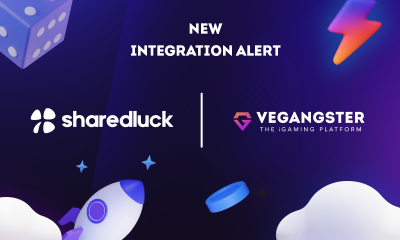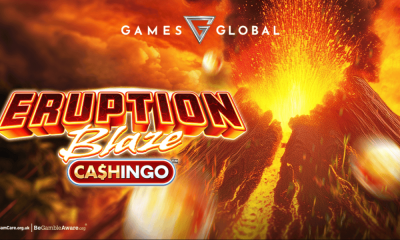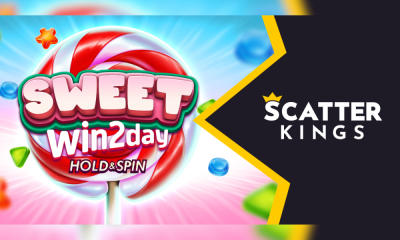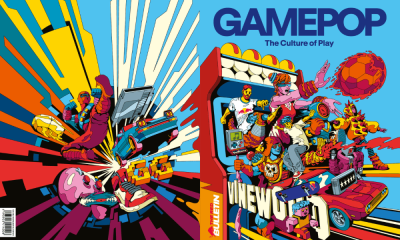Latest News
Tackling latency in next-gen gaming

Mathieu Duperré, CEO at Edgegap
Anyone that’s played a video game online has almost certainly experienced some kind of lag and connectivity issues. Despite huge infrastructure advances in the last few decades, latency remains a constant thorn in the side of gamers and detracts from the real-time experience that’s expected today.
Delivering a consistent experience to gamers playing on different devices with varying connection speeds – many of which are separated by thousands of miles – is a complex challenge. Massively popular online games like Roblox and Fortnite are just two of the many games which have benefited from years of investment into infrastructure in order to support millions of concurrent players. As the below chart from SuperJoost shows, multiplayer and online gaming is becoming the preferred way to play games amongst the most active gaming demographic, with all the technical challenges that this creates.
Games which can be played seamlessly across mobile, PC and console (so-called cross-play games) are also pushing the limits of what current internet infrastructure can deliver. Add in a new generation of streaming cloud gaming services like Stadia, Blacknut Games and Amazon’s Luna – plus Microsoft’s Game Pass and Sony’s revamped PlayStation Plus service, and you can see how the promise of console-quality performance over a broadband connection risks overloading networks that were never designed for this level of gaming.
So how can game companies, telcos and ISPs deliver on the performance promises being made to gamers? That’s where edge computing comes in.
Lag, latency and the Edge
When talking about latency it’s important to make it clear exactly what we mean. Latency refers to the amount of time it takes for game data to travel from one point to another. From the gamer’s perspective, it’s the delay between their command and seeing it happen in-game. How much latency a gamer experiences is dependent on the physical distance the data must cross through the multiple networks, routers and cables before it reaches its destination.
To use an extreme example, NASA’s Voyager 1 has made it about 14.5 billion miles from our planet so far, and it takes about 19 hours for its radio waves to reach us. Here on Earth, your latency is (hopefully) measured in milliseconds rather than hours; and gamers need around 30ms for the most optimal performance. Anywhere above 100ms can lead to noticeable lag and a frustrating experience.
This is where Edge computing comes in. As the name implies, Edge computing brings computation and data storage closer to the sources of data, placing it on the edge of the network where the performance gain is the greatest. As you’d expect, reducing unnecessary travel drastically speeds up the process providing an almost lag-free experience.
More players equals more chance for latency to be a problem
In the early days of gaming, local, couch play was part and parcel of the gaming experience. Today, a game where hundreds or even thousands of players are in the same session is nothing out of the ordinary, and there are Battle Royale games now, a whole genre of games where a hundred or more players are whittled down to a single winner.
The sheer scale of some online games dwarfs many of the most popular streaming services. Whilst Netflix remains the most successful streaming video site with 222 million subscribers, kids game Roblox has 230 million active accounts and Fortnite has over 350 million registered players. So if we assume these games reflect a growing trend, the demand on server networks is only going to increase, and gaming companies will have to look for more innovative solutions to continue meeting demand.
Cross-Platform
The ability for gamers on different devices and platforms to play and compete together is becoming an increasingly common feature of AAA multiplayer games like Apex Legends, Fornite and Call of Duty. EA Sports recently confirmed that FIFA 23 will be joining other heavy hitters in exploring cross-platform play. Considering the large amount of games on the market, and the various game modes for each game, studios are looking at crossplay to increase the amount of players who can play together. One of the main driver is to lower matchmaking time and prevent players from having to wait hours before opponents are ready to play with them.
From a latency perspective, different infrastructure across platforms means lag and downtime are far more likely. When it comes to cross-play, studios can’t use P2P (peer-to-peer) since console vendors don’t support direct communication (i.e. an Xbox can’t communicate directly with a playstation). On top of that, P2P may be limited by player’s home network (restrictive natting for example). That’s why studios typically use relays in a handful of centralised locations. Relays are seen as cheaper than authoritative server. They although have large flaws like making it harder for studios to prevent cheating, which is becoming more and more important with Web3 & NFT. This causes higherlatency since traffic needs to travel longer distances between players. For example, when Apex Legends went cross-platform, players were inundated with frame rate drops, lags and glitches.
Edge computing allows studios to deploy cross-play games as close as possible to their players, significantly reducing latency. Which can negate some of the delay issues around differing platforms.
VR and the Metaverse
Despite hitting shelves in 2016, VR is only now slowly making its way into mainstream gaming. Advances in technology have gradually improved the user experience, while also bringing the price of hardware down and closer to the mass market – not to mention the metaverse bringing renewed attention to the tech. But latency issues still present a serious hurdle to wider adoption unless it’s addressed.
Latency impacts the player experience far more in VR than in traditional gaming as it completely disrupts the intended immersive experience. A 2020 research paper found latency of over 30-35ms in VR, had a significant impact on players’ enjoyment and immersion, which was far lower than acceptable margins on a controller. But when it comes to the metaverse, achieving this might not be enough. Latency between headset and player has to be sub 5ms to prevent motion sickness.
In a recent blog, Meta’s VP, Dan Rabinovitsj, explained that cloud-based video games require a latency of around 75–150ms, while some AAA video games with high graphical demand require sub 35ms. Comparatively, Rabinovitsj suggests metaverse applications would need to reduce latency to low double or even single digits.
For better or worse, we’ve seen glimpses of what the metaverse has to offer already. Decentraland’s metaverse fashion week gave major brands like Dolce & Gabbana an opportunity to showcase virtual versions of their products. But attending journalists reported that the event was fraught with lag and glitches.
Gamers are a fickle bunch, so early adopters will simply move back to other games and platforms if they have poor initial experiences. Google’s Stadia promised to revolutionise gaming, but its fate was sealed at launch as the platform simply couldn’t compete with its competitors’ latency. Today, Google has ‘deprioritised’ the platform in favour of other projects.
If the metaverse goes to plan, it should encompass a lot more than traditional gaming experiences. But if it’s going to live up to players’ lofty expectations, akin to Ready Player One, more thought needs to be given to scalable and optimised infrastructure.
Unlocking next-gen gaming
The pace at which modern gaming is evolving is astounding, making the components discussed here work lag-free and as players expect will be a huge undertaking, and even more so when developers attempt to bring them all together in the metaverse.
The issue of latency may be less headline-grabbing than virtual fashion shows, NFTs and Mark Zuckerberg’s slightly unsettling promotional video, but the ability to seamlessly stitch all of these elements together will be critical in making the metaverse live up to expectations, and therefore, to its success.
Powered by WPeMatico
B2B Marketing
LinkDataMedia Drops ‘Startup’ Look with Major 5th Anniversary Rebrand

Editor’s Take
Why this matters: In the iGaming affiliate space, the five-year mark is a critical survival threshold. Many media startups fade away before reaching it. LinkDataMedia’s decision to rebrand now is a classic “graduation” signal. By shedding their startup skin for a more corporate, “blue-chip” aesthetic (the stability-focused blue triangle), they are telling operators and partners that they are no longer just an affiliate project, but a stable infrastructure partner ready for larger commercial deals.
The Full Story
LinkDataMedia, the parent company behind the popular affiliate portal Gamblers Connect, has announced a comprehensive corporate rebrand to coincide with its fifth anniversary.
The overhaul includes a completely refreshed brand identity, a redesigned logo, and a fully revamped website, all of which are now live. The move is described by the company not as a mere cosmetic update, but as a strategic pivot designed to distance the business from its “startup roots” and reflect its current status as an established player in the competitive iGaming media landscape.
Visualizing Maturity The new visual language features a modernized blue triangular logo, a shape chosen to represent “stability and forward momentum.” The digital user experience has also been streamlined, offering partners a cleaner interface that aligns better with the company’s matured operational capabilities.
Management Commentary Gjorgje Ristikj, Founder and CEO of LinkDataMedia, commented on the significance of hitting the half-decade milestone in such a volatile industry:
“Surviving the first five years in business takes more than luck. It takes belief, resilience, and the right people around you. This milestone, and the rebrand, reflect exactly that.”
Implementation The new branding has already been deployed across the main corporate website and is currently being rolled out across LinkDataMedia’s social media channels and internal communication platforms. As the company enters its sixth year, the refreshed identity aims to set the stage for a new phase of expansion and innovation.
The post LinkDataMedia Drops ‘Startup’ Look with Major 5th Anniversary Rebrand appeared first on Gaming and Gambling Industry Newsroom.
B2B Gaming Event
Win Systems to Debut New ‘Gold Club Colors’ and WIGOS Upgrades at ICE Barcelona
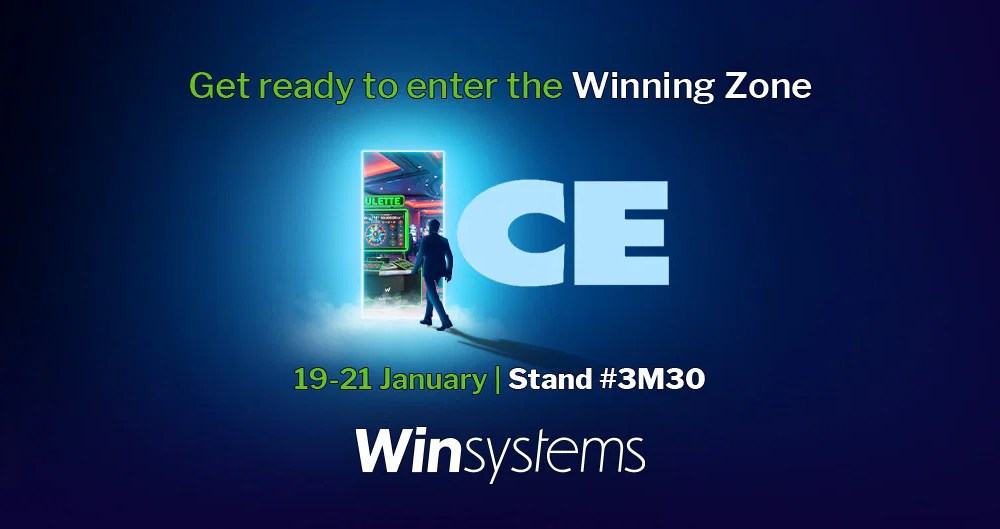
Editor’s Take
Why this matters: As ICE makes its historic move to Barcelona, established tech providers like Win Systems are under pressure to bring their “A-game” to the larger venue. The focus here isn’t just on cabinets; it’s the ecosystem. By highlighting WIGOS (their CMS) alongside WIN PAY, Win Systems is positioning itself as an infrastructure partner, not just a hardware supplier. The debut of the Gold Club Colors roulette specifically targets the growing demand for visually customizable electronic table games (ETGs).
The Full Story
Win Systems, the global provider of technology for the gaming and entertainment industry, has confirmed its product roadmap for ICE Barcelona 2026, the sector’s most significant international event taking place from January 19 to 21.
Exhibiting at Stand 3M30 at the Fira Barcelona Gran Via, the company will leverage the new venue to showcase a broad portfolio designed to cover the entire casino floor—from management systems to the gaming floor itself.
Systems and Fintech At the core of the showcase is WIGOS, the company’s flagship Casino Management System (CMS). WIGOS is widely recognized for connecting thousands of machines across multiple countries, and the Barcelona display will focus on advanced tools that streamline daily operations and optimize player retention.
Complementing the CMS, Win Systems will present WIN PAY, its secure transaction platform. As cashless and seamless payment solutions become standard requirements for operators, WIN PAY offers the necessary efficiency and security controls for modern gaming environments.
Hardware: Roulette and Slots On the hardware side, Win Systems is refreshing its electronic table game offering with the new Gold Club Colors electronic roulette. The Gold Club line has long been a staple in the company’s portfolio, known for its compact footprint and reliability; the “Colors” iteration promises to maximize visual impact on the floor.
Alongside the roulette, the company will display its latest slot hardware, including the Sublime and Rhapsody cabinets. These units are designed to house the company’s extensive game library, which has been adapted to suit diverse market profiles from Europe to Latin America.
Strategic Goals Win Systems aims to use the three-day event to reinforce its 30-year legacy in the industry. The company described its participation as a commitment to “continuous innovation,” inviting operators and regulators to explore how their integrated solutions can improve in-room performance.
The post Win Systems to Debut New ‘Gold Club Colors’ and WIGOS Upgrades at ICE Barcelona appeared first on Gaming and Gambling Industry Newsroom.
bet365
bet365 Brings Popular ‘Over/Under’ F2P Game to UK Market with LOW6

Editor’s Take
Why this matters: The UK betting market is mature, but the appetite for US sports (NFL in particular) is growing rapidly. By porting this specific “Over/Under” prop format—which has already succeeded in North America—bet365 is engaging a specific sub-segment of UK bettors who prefer the player-prop style of betting common in the US, rather than the traditional match-winner markets. It’s a smart retention play that uses “free-to-play” fun to educate users on complex prop markets.
The Full Story
bet365, the world’s leading online betting brand, has announced the UK launch of its popular Over/Under free-to-play (F2P) game, developed in partnership with gamification specialist LOW6.
This rollout follows successful deployments of the title in Canada, Mexico, Brazil, and multiple U.S. states, where it has already generated millions of prop picks. The move signals bet365’s intent to deepen engagement with UK-based fans of major American sports leagues.
How the Game Works Designed specifically for followers of the NFL, NBA, MLB, and NHL, the Over/Under game offers a fast-paced, prop-based format.
-
The Mechanic: Users select “Over” or “Under” on specific player performance stats (e.g., passing yards, points scored).
-
The Strategy: Players can choose between 3 to 10 markets per entry. The more selections they combine, the higher the potential prize.
-
The Bridge to Betting: Once an entry is confirmed, the game features a one-click integration that allows players to instantly port their F2P selections into a real-money bet slip on the bet365 platform.
Management Commentary Jon Riley, PR Operations Lead at bet365, highlighted the rising popularity of US sports across the Atlantic:
“The growth of sports betting in the US has been remarkable – fans are engaging with their favourite leagues, teams and events like never before… That passion for the NFL, NBA, MLB, and NHL has grown globally, and at bet365 we’re delighted to launch such an exciting and entertaining free-to-play game this side of the Atlantic.”
Jamie Mitchell, CEO of LOW6, emphasized the data-backed success of the format:
“The feedback from users, as well as the player numbers and underlying player engagement data shows this game has been a perfect fit. To see bet365 now making it available in the UK is testament to the success of the partnership.”
Josh Turk, Chief Strategy Officer at LOW6, added that the “slick” user journey from free-to-play to real-money wagering is a key feature driving the product’s retention value.
This launch further solidifies the relationship between bet365 and LOW6, leveraging F2P mechanics not just for acquisition, but to increase “player lifetime value” (LTV) by educating casual fans on prop betting markets.
The post bet365 Brings Popular ‘Over/Under’ F2P Game to UK Market with LOW6 appeared first on Gaming and Gambling Industry Newsroom.
-

 Latest News4 days ago
Latest News4 days agoVegangster Gives Operators Real-Time Jackpot Control and a New Revenue Stream with Sharedluck’s JackpotX
-

 Latest News4 days ago
Latest News4 days agoRegistration Open: N1 Puzzle Promo Show & Winner Announcement in Barcelona
-

 Latest News5 days ago
Latest News5 days agoTop 5 Newest High-RTP Slots at Social Casinos This Month
-

 David Reynolds Director of Games Strategy & Partner Management at Games Global6 days ago
David Reynolds Director of Games Strategy & Partner Management at Games Global6 days agoGames Global and Slingshot Studios expand Cashingo™ series with Eruption Blaze Cashingo™
-

 Central Europe5 days ago
Central Europe5 days agoScatterKings adds sugar-coated spin to Austria with bespoke win2day partnership
-

 Compliance Updates6 days ago
Compliance Updates6 days agoFinland’s Gambling Reform Is Official – What Happens Next?
-

 Gamepop6 days ago
Gamepop6 days agoGAMEPOP: The Culture of Play by Red Bull Media House – the first bookazine devoted entirely to video game culture
-

 affiliate marketing3 days ago
affiliate marketing3 days agoSOFTSWISS 2025: 45% Game Portfolio Growth, LatAm Extensive Expansion and Flagship iGaming Trends Report




